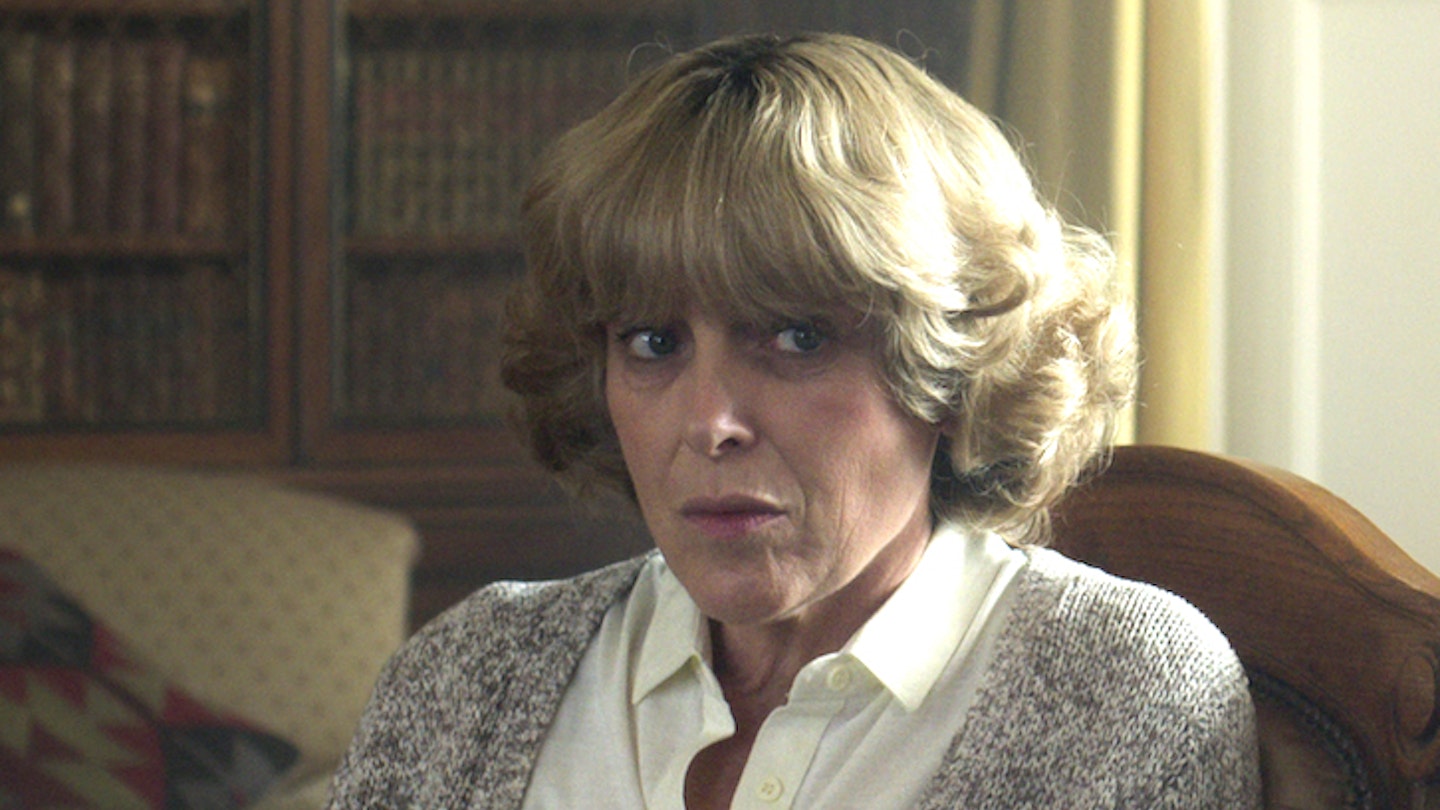In the final season of The Crown, Olivia Williams reprises her role as Camilla Parker Bowles with the hope of humanising one of the most elusive and historically demonised figures in the royal family.
Camilla may have once been the ‘other woman’, but that’s not what season six is interested in. Instead, we’re invited to understand the mechanics of Camilla and Charles’ enduring love for one another, Camilla’s fraught relationship with the press, and the gradual warming of public opinion as she emerged as a future Queen.
Part one of the final season, which came out in November, explored the weeks before and after Princess Diana’s death, and the ripples of devastation it caused around the world. ‘There was a very strange period of time,’ Williams says, ‘with the awful events of what happened to Diana, when [Camilla] could not be around. It was not very tactful to display their relationship in public so once again she had to keep a low profile and that involved being trapped in her home.’ To get into this headspace, Williams, 55, imagined Camilla’s life as one in exile, with photographers hiding in her bushes and little more than an old dressing gown for comfort.
How else did Camilla’s treatment by the press – particularly in the 90s – inform Williams’ performance? ‘I think her treatment was appalling,’ she’s quick to say, ‘it must have been hellish for her. They’re not the first people to be unfaithful to their husbands and wives and they’re not the first people to get divorced. They’ve proven to be very in love and very faithful.’ She adds, ‘I think the right people ended up together.’
Camilla and then-Prince Charles’ relationship arc is arguably one of the more subtle storylines in part one – a season that has so far received mixed reviews from the critics. ‘I’m very well-trained and I don’t read reviews,’ Williams admits, ‘but if you’re in a show about royalty and The Guardian gives you one star, which is what I’ve heard we got, then I consider that a badge of honour.’
What’s striking about season six – and in particular part two – is that The Crown seems to take a much more sympathetic stance towards their relationship, almost attempting to galvanise support from the audience. ‘I don’t think that’s a policy decision,’ Williams offers, ‘but certainly from my perception, when all the dust had settled and all the people who behaved badly had behaved badly, you realise that Camilla never had a rendezvous with a journalist or wrote a book called My Story or leaked information as far as we know about what an awful time she had.’
In that sense, and indeed in Williams’ opinion, Camilla’s resolve to never complain and never explain is what makes her so well-poised as Queen today. ‘She has gone through the process with unbelievable dignity and no malice. I think that is an extraordinary character that can be so benevolent towards the people who have tortured her.’
And that benevolence is rewarded in season six as Camilla receives an on-screen glow up – swapping 'moth-eaten lambswool jumpers and wellies’ for a more regal look. We saw her dressed up at her 50th birthday party in episode one, and later on in the series we see Camilla as a royal bride. ‘In the [previous] season, I really wanted to make it clear that she didn’t give a damn about her appearance and that her dressing was practical. But finally, when I got a fitting with The Crown dressmaker, it was really fun,’ says Williams. ‘I love that my job gives me the opportunity to be dressed by these unbelievable women – and they are mostly women. Suddenly it felt like: okay we’re bringing out the diamonds now.’
While researching Charles and Camilla’s wedding – which took place at Windsor Guildhall and Windsor Castle on 9 April, 2005 – Williams discovered that Camilla was so nervous on the day that she was deciding between one-inch and two-inch heels and ended up wearing one of each. ‘I definitely brought that to how she felt,’ The Crown actor explains. ‘That nervousness is not necessarily because you’re happy or sad, but because you’re terrified of what’s to come. She was still very unsure about what her life was going to be like, and it was so utterly different from her life up to that point,’ as Williams puts it. ‘And now she’s Queen.’
Is there a sense, then, that Charles and Camilla’s wedding helps give the Netflix series a happy ending? ‘I think the show and Peter [Morgan] definitely wanted to incorporate that sense of coronation within the marriage. There was a grandeur to the day that was telescoping time to make the ending feel like it brought the series up to date.’
Nikki Peach is news and entertainment writer at Grazia UK, working across pop culture, TV and current affairs.
